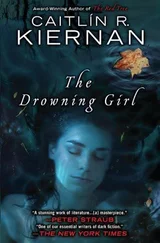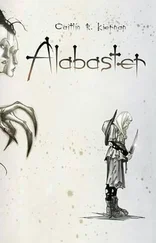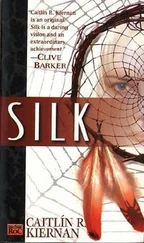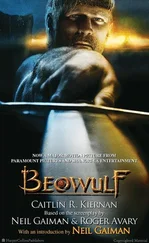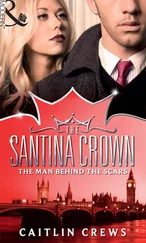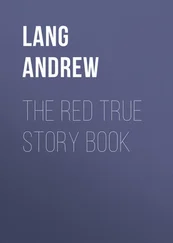Caitlin R. Kiernan - The Red Tree
Здесь есть возможность читать онлайн «Caitlin R. Kiernan - The Red Tree» весь текст электронной книги совершенно бесплатно (целиком полную версию без сокращений). В некоторых случаях можно слушать аудио, скачать через торрент в формате fb2 и присутствует краткое содержание. Жанр: Ужасы и Мистика, на английском языке. Описание произведения, (предисловие) а так же отзывы посетителей доступны на портале библиотеки ЛибКат.
- Название:The Red Tree
- Автор:
- Жанр:
- Год:неизвестен
- ISBN:нет данных
- Рейтинг книги:3 / 5. Голосов: 1
-
Избранное:Добавить в избранное
- Отзывы:
-
Ваша оценка:
- 60
- 1
- 2
- 3
- 4
- 5
The Red Tree: краткое содержание, описание и аннотация
Предлагаем к чтению аннотацию, описание, краткое содержание или предисловие (зависит от того, что написал сам автор книги «The Red Tree»). Если вы не нашли необходимую информацию о книге — напишите в комментариях, мы постараемся отыскать её.
The Red Tree — читать онлайн бесплатно полную книгу (весь текст) целиком
Ниже представлен текст книги, разбитый по страницам. Система сохранения места последней прочитанной страницы, позволяет с удобством читать онлайн бесплатно книгу «The Red Tree», без необходимости каждый раз заново искать на чём Вы остановились. Поставьте закладку, и сможете в любой момент перейти на страницу, на которой закончили чтение.
Интервал:
Закладка:
“Sarah, you are totally overreacting to this,” she said, emerging from the market. “I wasn’t trying to pry. I only asked you a question.”
“A pretty goddamn personal question.”
“I wasn’t trying to upset you.”
“Just get in the car,” I told her, turning the key and unlocking the driver’s-side door. “This isn’t a conversation I want to have in a parking lot.”
“Well, don’t you think you were kind of harsh back there?” she asked, nodding towards the store. “I mean, sure, I get that stupid shit, too. Everyone seems to think it must be completely marvelous to be a painter — or a writer — because they’ve never had to try to make a living doing it. But, still—”
“I asked you to please get in the car,” I said, interrupting her, and Constance sighed and rolled her eyes and smirked back at me across the roof.
“No, Sarah, in point of fact, you ordered me to. But I will, just as soon as you unlock my door,” and now her voice had affected an almost singsong rhythm, and that forced and utterly self-satisfied excuse for a smile remained painted on her pretty face.
When we were in the car again, she switched on the radio and tuned it to some noisy college-rock station broadcasting from Providence, then stared out the windshield while I drove. There were plenty of road signs, so at least I didn’t need to ask her for directions. I followed the narrow, curving rind of asphalt laid between Mackerel and Sheffield coves. There was a cobble-strewn beach on my left, Mackerel Cove Beach, speckled with fat sunbathers and fatter children. Through my open window, I could smell the heady sewage stink of low tide, the stench of stranded seaweed baking beneath the July sun, and I was dimly amazed that people were actually swimming in that. Farther out, I could see bobbing plastic buoys marking the positions of sunken lobster pots, and a couple of large rocks jutted up from the steely blue water. And then the coves were behind us, and on either side of the road there was farmland again, fields of hay and tall, rustling corn marked off by low stone walls. We passed a few horses, and the houses of people who could afford to live by the sea.
“I wasn’t trying to piss you off,” Constance whispered, and I only just caught her words above the radio.
“Sure could have fooled me,” I said.
“Sometimes things just come out the wrong way, that’s all. Yeah, I suppose maybe it wasn’t the most appropriate place to ask that question. But why in the world would I have wanted to start a fight with you in public?”
There were about a dozen things I wanted to say to her then, all of them vicious, all of them the scathing sorts of things you can’t take back once they’ve been spoken. But, instead, I only said, “Amanda killed herself, back in February. That’s why I never talk about her. I came up here to try and forget about Amanda.”
Neither of us said anything else then for a while, and there was only the radio, the tires humming against the road, the wind whipping in through my open window. Before much longer, we came to a sign that informed me we’d reached Beavertail State Park, and Constance lit a cigarette and turned the radio off.
“I’m sorry,” she said. “I didn’t know. I honestly had no idea.”
I shrugged, catching a glimpse of the sea through a break in the trees. “How could you have known, Constance? You’re the first person in all Rhode Island that I’ve told. Just don’t fucking apologize, okay?”
The road led all the way down to the point and to the tall whitewashed lighthouse. Land’s end, literally, there where the Atlantic had spent however many million years chewing away at the southern tip of the island, and the woods and underbrush and grassy open spaces suddenly gave way to a steep line of cliffs leading down to the sea. It was a breathtaking sight, even through the obscuring haze of my confusion and anger, and I felt like I’d driven out of the world and into a picture postcard.
“That’s the new lighthouse,” Constance said, though it didn’t look very new to me. “It was built sometime in the mid-Nineteenth Century, after the old lighthouse burned down. There’s been a lighthouse at Beavertail since 1753.”
“Burned down?” I asked her, glancing from the sea cliffs back to the stone tower, which, to my eyes, seemed fairly impervious to fire.
“Well, the first one was wood,” she said. “Actually, I think there might have been two wooden lighthouses, before they finally built this one. Anyway, Sarah, you can’t stop here,” and she pointed ahead of us, where the road curved north again. “There’s a parking lot right up there.”
And so nothing else was said about Amanda or the scene at the market or the nonexistent “new story” she claimed I’d let her read. I parked in a paved lot a couple hundred yards northeast of the lighthouse, and for the next couple of hours or so, I followed Constance across the rocks. Turns out, she’s a veritable font of information about the place, and I listened while she rambled on about naval history, shipwrecks, the local geology, how you could find trilobites farther up the coast if you know where to look, and the whale carcass that had washed ashore here when she was a teenager.
The air was filled with the cries of gulls and with cormorants and smaller seabirds that I didn’t recognize. The waves seemed tremendous, rushing in and slamming against the tilted, metamorphosed strata, breaking apart and rushing out again. There was a brisk, cool wind coming off the sea, but I was glad I’d thought to wear sunscreen, because I burn at the drop of a fucking hat. We were not entirely alone, but close enough for comfort. There were a few fishermen here and there, casting their lines into the waves, and they paid us no mind. Finally, winded and sweating, I found a place to sit, a high flat boulder safely out of reach of the salty spray and not too covered with the white splashes of gull shit that dappled almost everything above the high-tide line. Constance sat down next to me. She gave me a cigarette and we sat together smoking (though, later, I learned it’s now illegal to smoke at Rhode Island beaches, beginning this year) and watching the waves.
“I never knew anyone who committed suicide,” she said. “I can’t imagine what it must be like. I really can’t.”
I stared down at my tennis shoes dangling over the edge of the boulder, guessing it was at least twenty feet down to the water.
“And I couldn’t tell you,” I replied. “All these goddamn months later, I still can’t put it into words.”
“Was she sick?”
I laughed and asked her to define “sick.” Instead, she stubbed her cigarette out on the rock and took her ginger Altoids tin from a pocket, depositing the butt inside.
“She wasn’t sick,” I said. “I think she just didn’t want to be here anymore. Half the time, I think I know exactly how she felt. I just don’t have the requisite nerve to act on my convictions.”
“You don’t mean that,” she said, looking at her Altoids tin and not at me.
“Don’t tell me what I do and do not mean, Constance.”
“You’re still mourning, that’s all.”“Yeah, sure,” I said. “That’s all,” and I took a long, last drag, then flicked the half-smoked cigarette at the waves.
“You really shouldn’t do that,” she said, scowling, slipping the tin back into her pocket. “Cigarette butts are poisonous to birds and fish. And the cellulose acetate they’re made from isn’t biodegradable. I read somewhere, people throw out four and a half trillion cigarette butts a year. Four and a half trillion .”
“We should head back soon,” I said.
Constance looked over her shoulder, back towards the trail leading through a thicket of beach roses, bayberry, Queen Anne’s lace, and poison ivy and back up to the parking lot. “What’s the hurry?” she asked. “What’s there to get back to?”
Читать дальшеИнтервал:
Закладка:
Похожие книги на «The Red Tree»
Представляем Вашему вниманию похожие книги на «The Red Tree» списком для выбора. Мы отобрали схожую по названию и смыслу литературу в надежде предоставить читателям больше вариантов отыскать новые, интересные, ещё непрочитанные произведения.
Обсуждение, отзывы о книге «The Red Tree» и просто собственные мнения читателей. Оставьте ваши комментарии, напишите, что Вы думаете о произведении, его смысле или главных героях. Укажите что конкретно понравилось, а что нет, и почему Вы так считаете.

